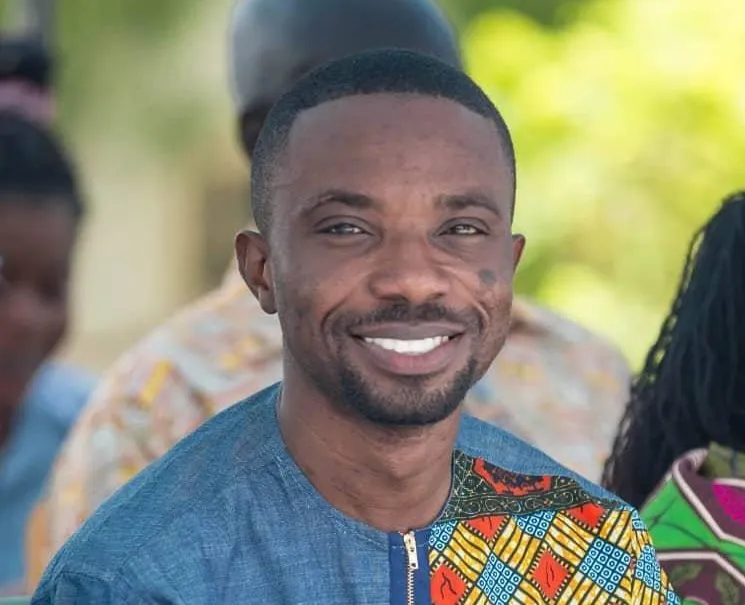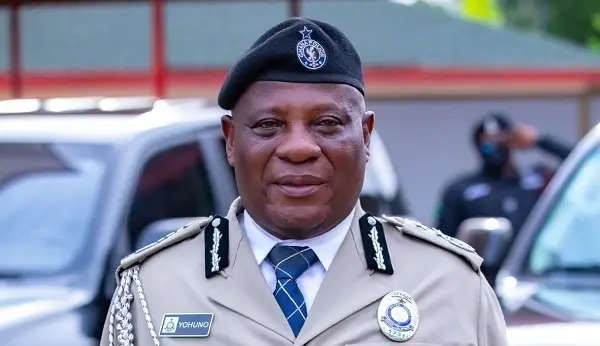The ongoing standoff between the Ghana Police Service and supporters of Sir-Obama Pokuase has taken a fresh turn, with leading members of the New Patriotic Party (NPP) openly criticising the Inspector General of Police (IGP), Christian Tetteh, Yohonu, over what they describe as an unjustifiable delay in granting bail.
NPP communicator Dennis Miracles Aboagye delivered a strong warning to the IGP, asserting that the decision to keep the accused in custody despite fulfilling all bail requirements could set “a very dangerous and slippery precedent” for the country’s governance and justice system.
In his view, the current situation threatens the democratic gains Ghana has made over the years and risks normalising the abuse of state authority.
Aboagye stressed that “state power isn’t and cannot be used to pursue personal vendetta nor to satisfy personal emotional cravings.” His remarks pointed to a broader concern that political or personal bias should never influence the administration of justice.
“The gentleman has satisfied his bail bonds… certified by the courts. It makes no sense to say, he stays in custody until you write to the controller and get feedback before you release him.
“Sir, pay close attention to this, even if that’s necessary, be reminded that the CAGD has an online portal for each person on their roll and can be logged in to verify. You don’t need to write a letter, dispatch, and wait for a reply. Login and verify.”
Dennis Miracles Aboagye
Aboagye warned that the misuse of state authority in this situation could lead to far-reaching negative consequences in the future. He pressed the IGP to free the accused without delay and let the justice system operate independently.
Emphasising the primacy of the law over personal opinions, he stressed that safeguarding human rights is essential and that intentional breaches only erode public confidence.

He maintained that swift corrective action was necessary, as future generations would judge today’s decisions.
Another senior NPP member, Patrick Kwarteng Sarpong, echoed Aboagye’s position, accusing the IGP of presiding over an “incompetent” and politically motivated police service.
He pointed out that bail conditions had been “fully met and verified by the court,” but the police were still refusing to release Sir-Obama Pokuase and others.
Sarpong described the situation as a “blatant abuse of power and a shameful continuation of the Mahama regime’s lawless tactics.”
He criticised the police for treating an accused person, who was supposedly assisting with a critical investigation, “like a serial murderer.”
Bail Dispute Puts IGP Under Intense Pressure
The controversy stems from statements made by Sir-Obama Pokuase’s lawyer, Ernest Opoku Nti, who confirmed that his client had met “every single bail condition imposed… by the Accra Circuit Court.”
According to Opoku Nti, the court registrar had reviewed the sureties and documents, found them satisfactory, and formally instructed the police to proceed with the bail process. Despite this, the accused remained in custody.

“At this stage, the continuous detention of the accused person is simply political. It is just power at play. The ups and downs and unnecessary tricks here and there make no sense.”
Ernest Opoku Nti
Opoku Nti called on the IGP to act in accordance with the law, even if public confidence in the police leadership is low.
“Please, be honorable enough to release the suspects. Show some fidelity to the law, the courts, and our great constitution,” he appealed, adding pointedly, “Shame us Mr. IGP!!!”
Meanwhile, the dispute over Sir-Obama Pokuase’s bail has now become a test case for the IGP’s commitment to upholding the rule of law.
For Aboagye, Sarpong, and other critics, this is not merely about one individual’s liberty but about safeguarding Ghana’s democratic institutions from the creeping normalisation of arbitrary state action.

Public debate around the case has intensified, with some arguing that such incidents erode public trust in law enforcement and the justice system.
Supporters of Sir-Obama Pokuase maintain that keeping someone in detention after meeting bail terms is a violation of their constitutional rights, while others believe the police must offer a clear explanation if security concerns justify the delay.
For now, the IGP remains under pressure to respond to these criticisms and either defend his actions with evidence or comply with the court’s directive.
The outcome of this standoff could set a significant precedent for how Ghana’s justice system balances state authority with individual rights in politically sensitive cases.
READ ALSO: Nigeria’s Inflation Eases As Economy Shows Cautious Growth


















